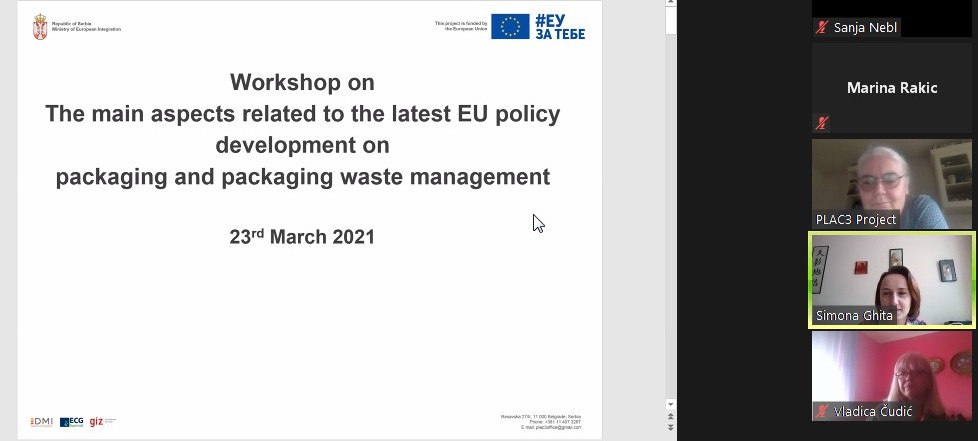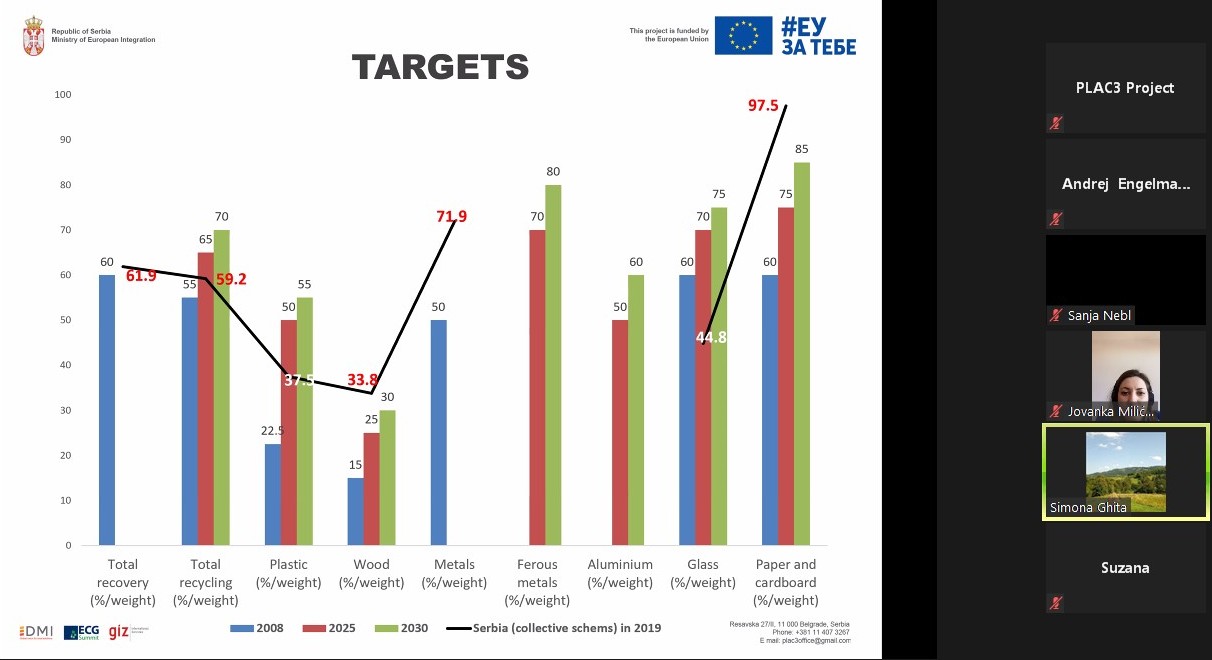Transposition of the Union acquis in the field of packaging waste management into the national legislation of Serbia was the topic of a workshop organised by the Policy and Legal Advice Centre project.
The workshop was held as the final part of the project activity within Negotiation Chapter 27 – support to the Ministry of Environmental Protection in full alignment of national legislation with the Union acquis in the field of packaging and packaging waste management, bearing in mind that relevant EU legislation has been improved in accordance with Union plans for transition to circular economy.
Project expert Simona Ghita presented relevant EU legislation and examples of European practice at the workshop held on 23 March 2021.
Directive 94/62/EC on packaging and packaging waste has been partially transposed into Serbian legislation through the Law on Waste Management and related bylaws. It is also necessary to transpose Directive 2018/852, which amends Directive on packaging waste. The new directive sets targets for EU Member States to achieve: at least 65% of the weight of all packaging should be recycled by the end of 2025, as well as 50% of plastic products, 70% of glass and 75% of paper and cardboard packaging.
Directive 2015/720 amended the Packaging Waste Directive when it comes to reducing the use of lightweight plastic bags. The target set is to limit their use to a maximum of 40 per person during the year, which should also be achieved by the end of 2025.
Ghita presented a comparative analysis of the models of work in EU Member States, as well as the experience of Romania: in 2005 it started implementing the Extended Producer Responsibility scheme (EPR), companies are responsible for either collecting waste themselves or having an EPR scheme, as well as investing in collection of municipal waste in cooperation with local authorities.
In Serbia, EPR schemes exist and are functional; targets set by the amended Packaging Waste Directive have been achieved for paper, cardboard packaging, plastic and wood, but not for glass and metal. The legal gap analysis showed that the transposition of the amended Packaging Waste Directive should be completed and the management system and obligations of all actors should be clearly defined. In practice, the problem is the lack of waste separate collection/sorting and lack of incentives for the production of reusable packaging, as well as the strong focus on landfilling and the lack of guidance to local authorities on how to organise sorting of waste. It is necessary to improve the monitoring and transparency of EPR schemes, apply the “green principle” in public procurement, as well as increase the capacity for recycling and reuse.
Githa also emphasized the importance of conducting public awareness campaigns, which is also prescribed by the Directive. She also pointed out the problem of the existence of online sales, where there are unregistered operators of packaging waste.
Expert Vladica Čudić spoke about the current situation in Serbia, institutional capacities in the field of packaging waste management, as well as recommendations. She especially pointed out that it is necessary to introduce financial incentives for recycling, strengthen local self-governments in order to achieve the implementation of local waste management plans, as well as to plan the establishment of regional waste management companies providing separate collection of recyclables.
Project experts also presented Directive 2019/904 on reducing the impact of certain plastic products on the environment. This directive prohibits the use of 10 single-use plastic products and it builds on the one on packaging waste because some of these plastic products are also considered packaging. According to Simona Ghita, the European Commission has prepared guidelines on how to implement both directives in parallel, which are expected in the next few months.
The workshop was attended by representatives of the Ministry of Environmental Protection, the Serbian Environmental Protection Agency, the Serbian Chamber of Commerce, as well as economic operators.





